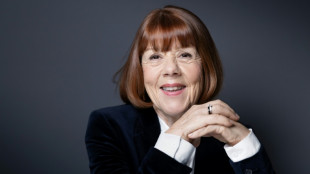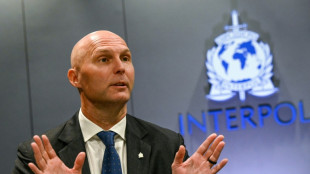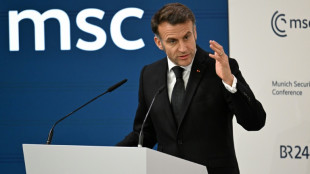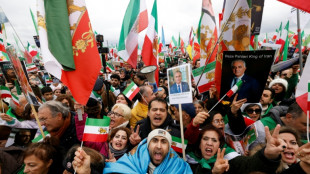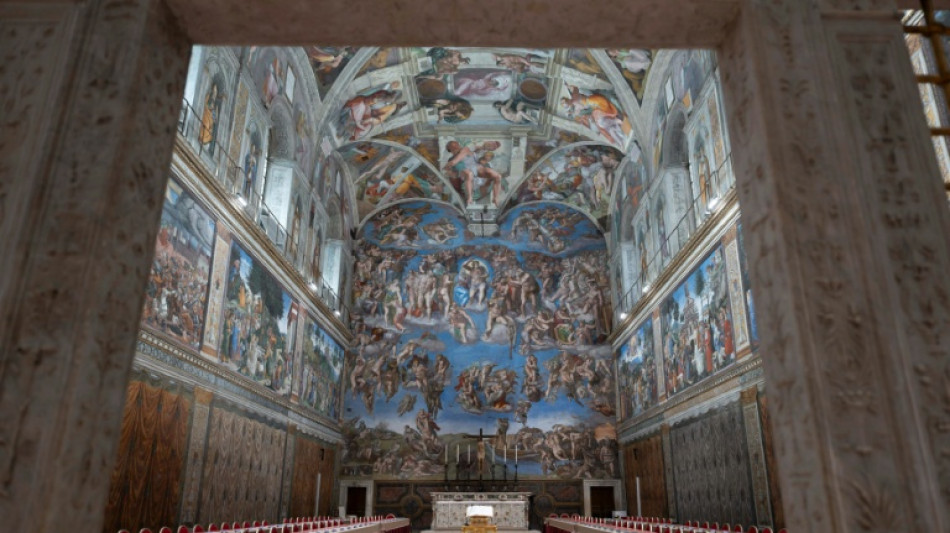

Next pope faces 'difficult, complex' point in history, cardinals told
The cardinal leading the last mass before a conclave to elect a new pope urged his peers Wednesday to choose someone able to protect the Catholic Church's unity and lead a "difficult and complex" point in history.
Cardinals from five continents held a final mass in St Peter's Basilica in the Vatican before shutting themselves away to choose a new leader for the world's 1.4 billion Catholics.
A total of 133 cardinal electors are set to take part in the conclave, the voting process to pick a successor to Pope Francis, who died last month after a 12-year papacy.
"We are here to invoke the help of the Holy Spirit, to implore his light and strength so that the pope elected may be he whom the Church and humanity need at this difficult and complex turning point in history," Giovanni Battista Re, dean of the College of Cardinals, said during the mass.
"This is also a strong call to maintain the unity of the Church... a unity that does not mean uniformity, but a firm and profound communion in diversity."
The cardinal -- who himself is too old to vote -- said it was a choice of "exceptional importance", which required the red-robed prelates to set aside "every personal consideration".
No clear frontrunner has emerged from among the cardinals, who represent a range of progressive and conservative traditions within the Church, and the contest to lead the 2,000-year-old institution appears to be wide open.
At a time of geopolitical uncertainty, the new pope faces diplomatic balancing acts, as well as Church infighting, the continued fall-out from the clerical child abuse scandal, and -- in the West -- increasingly empty pews.
Battista Re urged the cardinals to pray for "a pope who knows how best to awaken the consciences of all... in today's society, characterised by great technological progress but which tends to forget God".
The mass was the last rite to be celebrated publicly before the Church's 267th pope is presented to the world from a balcony of St Peter's Basilica, likely several days later.
Both Francis and his predecessor Benedict XVI were elected within two days, but the longest papal election in Church history lasted 1,006 days, from 1268 to 1271.
With clerics from around 70 countries, this conclave is the largest ever, and the next pontiff will have to secure at least 89 votes -- a two-thirds majority.
The cardinals, who must be younger than 80 to take part, are staying at the Vatican's Santa Marta guesthouse -- where Francis used to live -- and Santa Marta Vecchia, a building next door usually housing Vatican officials.
At 3:45 pm (1345 GMT) they will set off from Santa Marta to gather at the Pauline Chapel of the Apostolic Palace, where a prayer will be held from 4:30 pm.
They then proceed into the 15th-century Sistine Chapel for the conclave, which is "one of the most secret and mysterious events in the world", the Vatican said on Tuesday.
- Swear an oath -
Under the ceiling of frescoes painted by Michelangelo, Italian Cardinal Pietro Parolin -- the senior elector -- will call on God to give the cardinals "the spirit of intelligence, truth and peace" needed for their task.
Parolin, a frontrunner who was Francis's number two as secretary of state, will then lead the cardinals in chanting the Latin invocation of the Holy Spirit: "Veni, Creator Spiritus".
The cardinals have spent days discussing the most pressing challenges facing the Catholic Church and the character traits its new leader needs.
Burning issues include falling priest numbers, the role of women, the Vatican's troubled balance sheets and how to adapt the Church to the modern world.
Some 80 percent of the cardinals were appointed by Francis -- an impulsive, charismatic champion of the downtrodden.
But while interviews in the run-up suggested that some cardinals favour a leader able to protect and develop his legacy, others want a more conservative defender of doctrine.
More than a dozen names are circulating, from Italian Pierbattista Pizzaballa to Hungary's Peter Erdo and Sri Lanka's Malcolm Ranjith.
We may never know how close a race it is. Having surrendered mobile phones, the red-robed cardinals will swear an oath to keep the conclave's secrets.
They also each pledge to "faithfully" serve as pope should they be chosen, before the master of liturgical ceremonies says "Extra omnes" ("Everyone out").
Once the doors close, the cardinals fill out ballots marked "Eligo in Summum Pontificem" ("I elect as Supreme Pontiff").
They then carry them, folded, and place them on a silver plate which is used to tip them into an urn, set on a table in front of Michelangelo's Last Judgment.
Battista Re said he hoped "Michelangelo's looming image of Jesus the Judge would remind everyone of the greatness of the responsibility".
The cardinals traditionally cast just one ballot on the first evening, burning the votes along with a chemical that produces black smoke if there is no decision, white for a new pope.
Outside, hundreds of the faithful have gathered on St Peter's Square, all eyes trained on the Sistine Chapel chimney, with news of the first vote expected by early evening Wednesday.
莊-X.Zhuāng--THT-士蔑報

